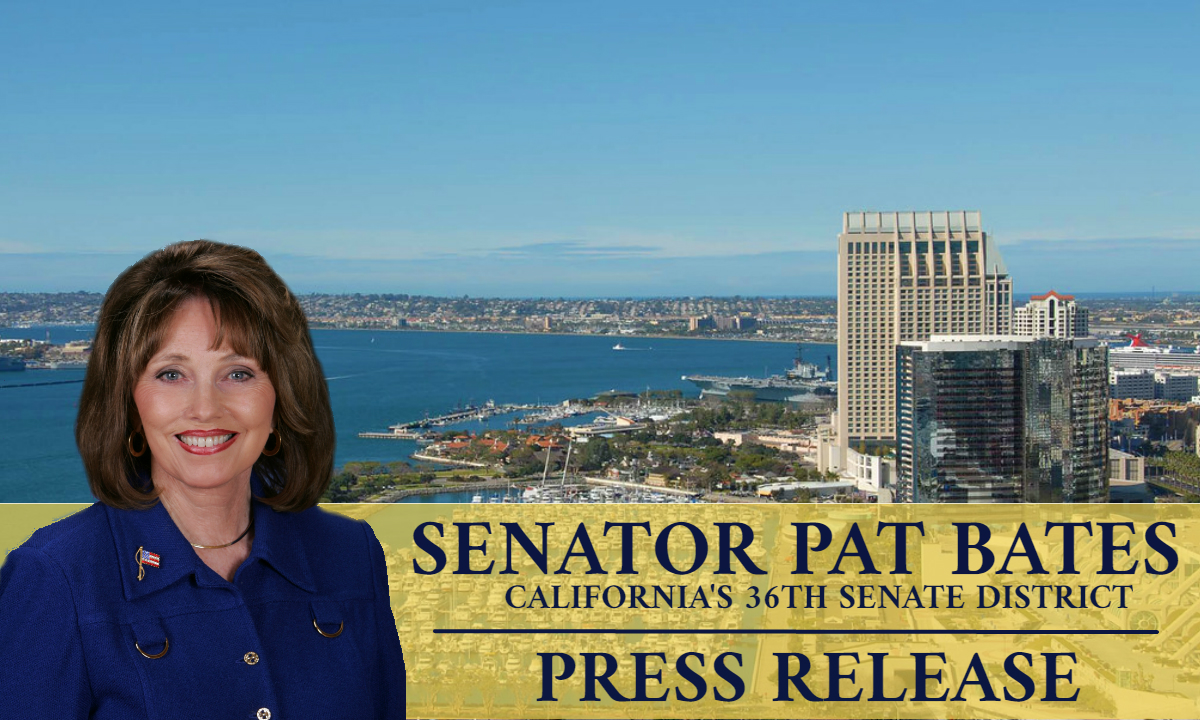Bill Could Generate $269 Million in New Tax Revenue – Without Raising Taxes
SACRAMENTO – Senator Patricia Bates (R-Laguna Niguel) announced today that she has reintroduced legislation to correct an outdated interpretation of property “change of ownership” that has been part of the long running debate around commercial property and Proposition 13 (the 1978 initiative that limited property tax increases).
“Proposition 13 exists to ensure that property taxes do not go out of control for any California homeowner or business,” said Senator Bates. “But it is not right that some people have exploited an outdated interpretation of Prop. 13 to avoid paying the property taxes that they legitimately owe. While liberal interest groups may use an extreme example as a pretext to wipe out all Prop. 13 tax protections for commercial property, the Legislature can instead use a scalpel to prevent further abuses.”
Senate Bill 1319 requires reassessment of any property or single transaction if 90 percent of the ownership interest changes hands within any three-year period. The bill will prevent a repeat of examples similar to the 2006 purchase of Santa Monica’s Miramar Hotel where the purchaser realized he could structure the transaction without any one entity owning a 50 percent majority share in the property.
Despite the fact that 100 percent of the hotel’s ownership changed hands, reassessment of the property did not occur, resulting in a tax loss to Los Angeles County of over $1 million annually. Had SB 1319 been in effect in 2006, Los Angeles County would have reassessed the Miramar Hotel.
SB 1319 also increases the penalty for failure to file a “change in ownership” statement, from 10 to 15 percent of the taxes applicable to the new base year value (or old base year value, if there is no change in ownership). The bill requires the California Board of Equalization (BOE) to notify assessors if a legal entity change in ownership occurs and to submit a report to the Legislature by January 1, 2023, regarding the bill’s economic impact and frequency of assessment.
Democratic-controlled legislative committees previously killed similar bills from Senator Bates: SB 259 (2015) and SB 1237 (2018). The BOE estimated that SB 1237 could have generated $269 million annually in new tax revenue.
SB 1319 is also similar to a 2014 bill authored by former Democratic Assembly Members Tom Ammiano and Raul Bocanegra. Their bill, AB 2372 (2014), cleared the Assembly with bipartisan support, only to die in the Senate.
The following stakeholders made statements in support of Senator Bates’ latest bill to clarify Prop. 13:
Jon Coupal, President of the Howard Jarvis Taxpayers Association:
“The sort of abuse of the ‘change of ownership’ rules that occurred with the purchase of the Santa Monica hotel can easily be remedied by this legislation. Opposition to this bill exposes progressive tax and spend interests as not being serious about corrective action that is consistent with the letter and spirit of Proposition 13. What they really want is wholesale destruction of Proposition 13 in a way that generates $12 billion in higher taxes for the purposes of funding their narrow interests.”
Rob Lapsley, President of the California Business Roundtable (@CalRoundtable):
“SB 1319 will further strengthen Prop. 13 by closing a loophole established by the Legislature more than 40 years ago. Prop. 13 continues to be the most important protection homeowners and businesses have against higher property taxes. It provides certainty that homeowners can afford to stay in their homes and businesses can continue to operate. CBRT has strongly supported the previous bills and strongly support SB 1319 as an important step in protecting and strengthening Prop. 13.”
Rex Hime, President and CEO of the California Business Properties Association:
“Enacting Senator Bates’ bill into law would be a good example of policy over politics. It would provide local governments with resources to meet their many needs.”
SB 1319 is currently awaiting a hearing date from the Senate Governance and Finance Committee.




